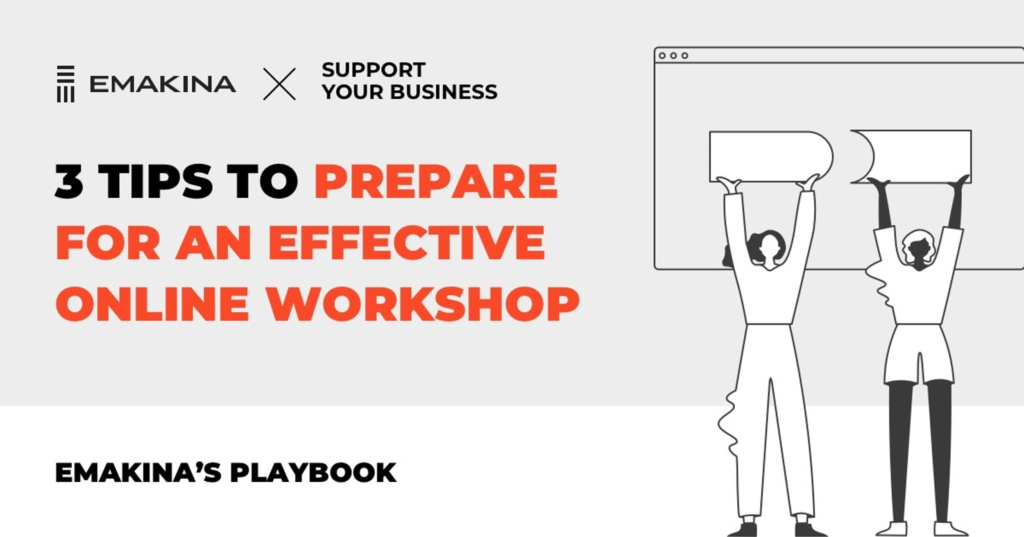Preparation is key: 3 tips to prepare for an effective online workshop

All of us were thrown into working remotely, completely unprepared for the pace and scale of the change. We had to quickly adapt to new ways of communication, remote collaboration and managing productivity.
Workshops and co-creation sessions are in the core of our day-to-day work. In “normal life” those sessions are built around all participants being physically present in a room, armed with sharpies and post-its and ready to sketch and ideate. When swapping physical workshops with virtual ones you will be up against a number of challenges, for example loss of nuances in communication, relying on little body language cues and lack of participation.
We created the “Remote leading and collaboration” playbook to share our approach and learnings. Here are 3 tips from the playbook on preparing for an online workshop:
1. Preparation: you will have to dedicate more time in prepping for remote sessions to make sure you can manage the participation in the group and the brainstorm’s results
What works for us:
- Split the agenda in more than one session. A workshop that normally takes 4 to 6 hours can be split into 2 or 3 mini workshops.
- Assign clear homework as preparation. Review it in short catch ups before every wider session.
- Online collaborative tools are crucial. We love Mural, Google Docs, Zoom & Slack.
2. Create a timeboxed agenda: having a very clear structure will help you be in control during the sessions and manage expectations.
What works for us:
- Have a catch up to present the agenda so the other participants can gain understanding of the workshop’s structure and make changes if needed.
- Plan consistent breaks every 60 to 90 minutes.
- Keep each workshop to 4 hours max.
3. Agree on roles: this is not a one-man-game and you should make sure that you get support from a colleague or two during the workshop.
What works for us:
- One person is the facilitator. That person runs the workshop in terms of structure and facilitates the collaboration.
- A different person is the time keeper and takes notes.
Want to read all the tips? Download our ‘Remote leading and collaboration’ playbook here.
Our recent blog posts
See all blogs-
How is AI’s synthetic data enhancing User Experience Research? Technology

-
Web3.AI Rising : How new technology can add value to your business

-
How generative AI helped us create an e-commerce app – with personalised content – in just 2 weeks Technology

-
Can you build a foodie app in 3 days using Generative AI? (Spoiler alert: yes!)


